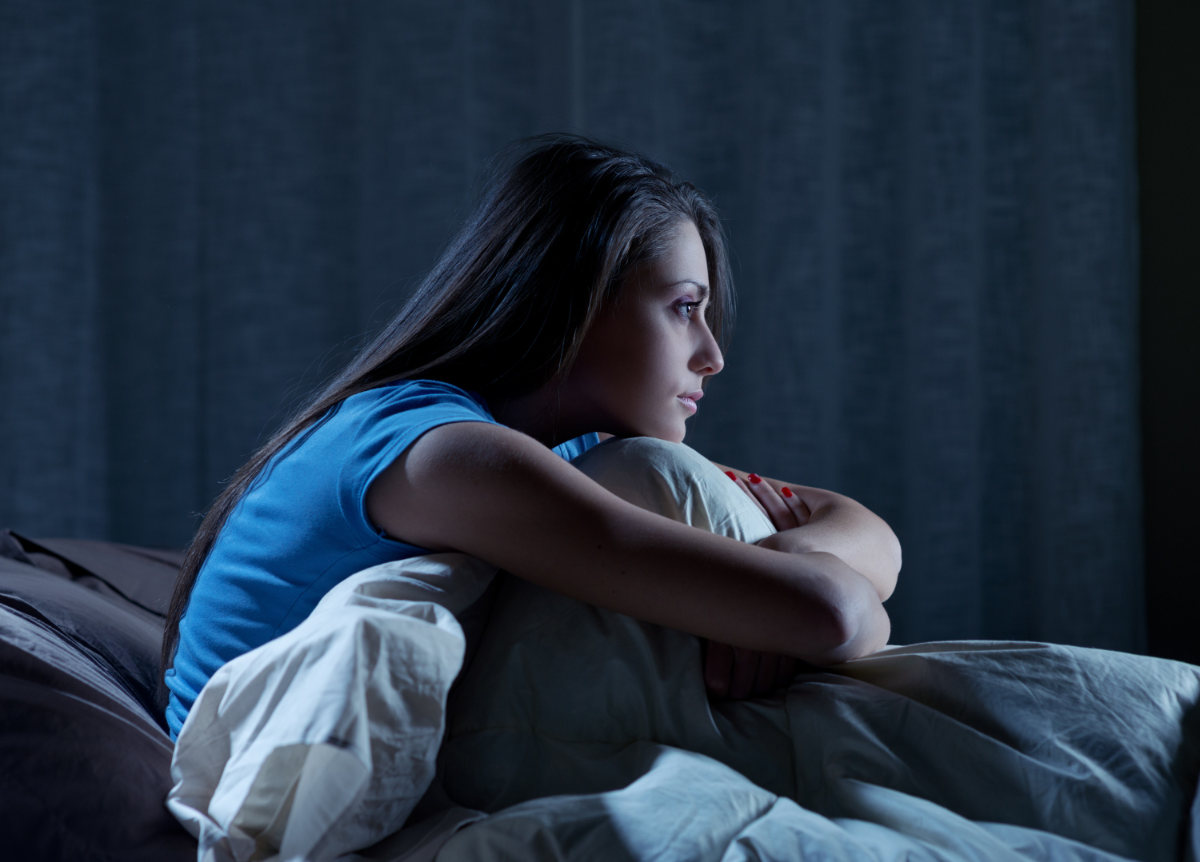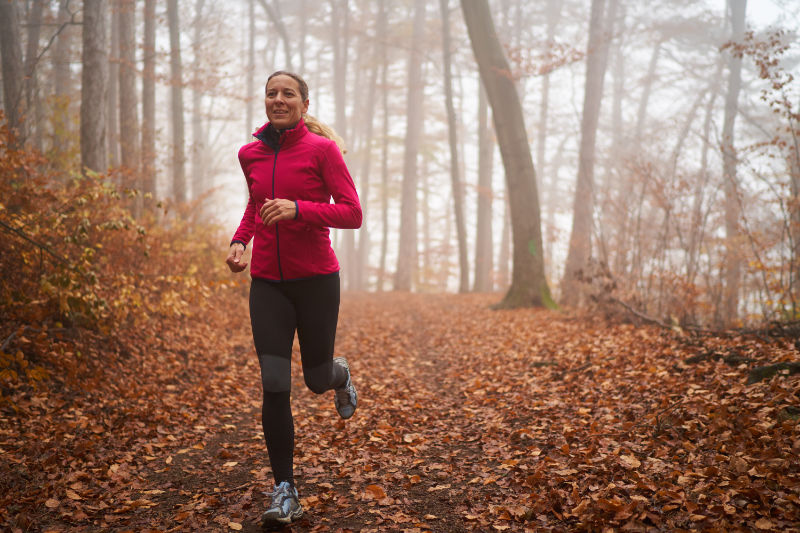It’s one of the more frustrating things in life: The night before an important event or big day, where you desperately need to feel rested, you simply can’t switch off and fall asleep. So instead of waking up refreshed, you’re frustrated, stressed and groggier than ever – before the day’s even begun. That ways it’s a good idea to learn a few ways to help insomnia naturally – from a good bedtime routine to sipping on some chamomile tea.
If this sounds like a familiar scenario, you can at least take comfort in the fact you’re not alone. The Sleep Health Foundation estimates one in three of us have at least mild insomnia at some point in our lives, and at any given time, approximately 10% of the population’s suffering with it.
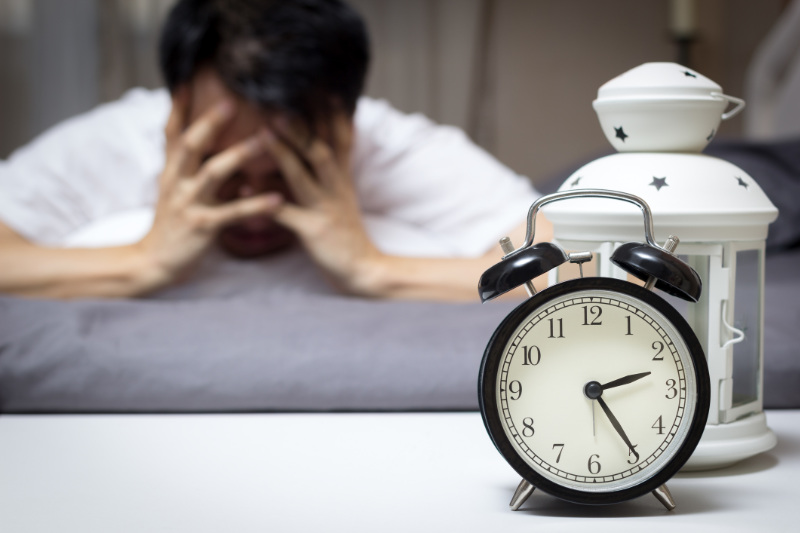
According to the NHS, occasional episodes of insomnia may come and go without causing any serious problems, but for some people, it can last for months or even years at a time. And sleep deprivation isn’t just a recipe for a painful and unproductive Monday morning – it can be also be really detrimental to your health.
What are the health problems causes by insomnia?
Studies have shown that regularly missing out on a solid eight hours’ slumber can put you at risk of serious conditions, including obesity, heart disease and diabetes, and chronic poor sleep is also associated with a shortened life expectancy.
If you’re regularly finding it a struggle to drift off or stay in the land of nod, take solace in the fact that you’re not alone: As many as 16 million UK adults are suffering from regular sleepless nights, with a third (31%) reporting that they have insomnia, according to a 2017 survey by Aviva.
When you’re desperate for some slumber, it’s tempting to raid the medicine cabinet for fast relief, but sleeping pills can sometimes leave you feeling worse the next day and are not generally recommended as a long-term solution for everybody. But, there are plenty of ways to help insomnia naturally.
While there’s no guaranteed cure for insomnia (and some sleep problems require a bit more help from specialists), there are some natural solutions and lifestyle changes that could help.
Recommended: The sleep myths damaging your health – 5 sleep myths debunked.
10 ways to help insomnia naturally
Here, some leading health experts reveal their suggestions for making sleepless nights a thing of the past…
1. Go to bed and get up at the same time every day
It’s tempting to stay awake for ‘just one more’ episode of the latest Netflix series, but messing with your sleep pattern can seriously affect your ability to to drift off, sometimes for days to come. “Our bodies love routine and follow a circadian rhythm,” says Dr Prudence Knight, online GP at Push Doctor. “This is driven by hormone levels which vary throughout the day.”
Dr Knight explains that when our body is running on a proper sleep schedule, we’re able to get out of bed in the morning and feel alert during the day. Conversely, in the evening, sleep hormones gradually help the body to feel tired, allowing us to drop off easily at bedtime. “Go to bed and get up at the same time every day,” she advises. “This includes the weekends – and don’t nap, no matter how little sleep you’ve had. It can take several weeks for a sleep schedule to take effect, but eventually, the majority of people who try it end up with a good pattern.”
2. Cut out caffeine and go light on the booze

The festive period is synonymous with alcohol consumption. From Christmas Day fizz to office parties, the social engagements of the season can mean you drink way more than you usually would.
While we’d never begrudge anyone for getting involved in the festivities, overindulging in booze could cause your sleep to take a knock. And if you’re relying on caffeine to power you through the morning after, this could also be adding to the problem. One of the best ways to help insomnia naturally is to avoid stimulants such as caffeine.
“If you can, try to stay away from alcohol or caffeine six hours before you go to bed, as they both can interfere with your sleeping pattern,” says Dr Kim Glass, lead GP at Bupa Health Clinics. “Caffeine is a stimulant and the effects can stay in your systems for hours, depending on how much you have.
“Similarly, alcohol can affect the quality of your sleep, as it reduces the amount of REM (rapid eye movement) sleep you get, and this is the type of sleep which often makes you feel most rested.” Glass warns that a night of drinking can also disrupt your sleep in other ways, as you may find yourself waking in the night needing the toilet, or with a thirst.
3. Make your bedroom a device-free zone
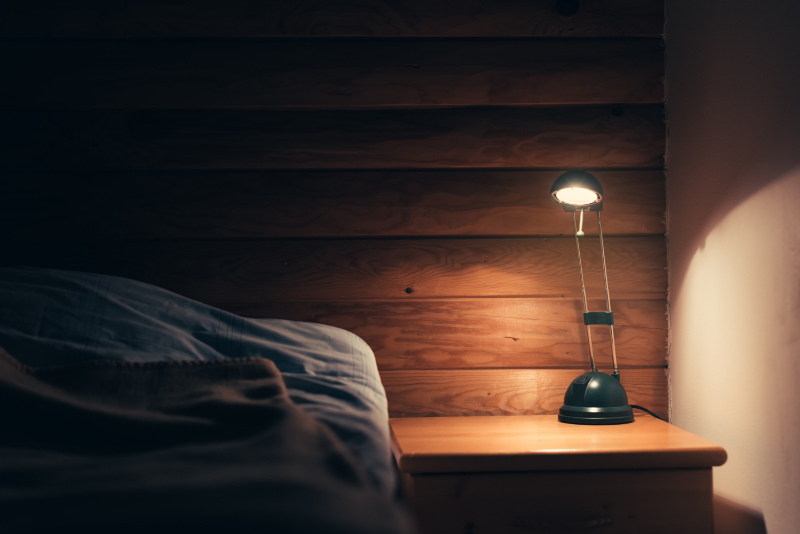
If a late-night scroll through Instagram is part of your bedtime routine, try swapping in a good book instead. “Your bedroom should be a calm place, free of stressful distractions,” says Dr Glass.
Not only can social media’s addictive nature keep you awake at night, but too much screen-time can have a sleep-suppressing effect on your brain. “Tablets and smartphones emit blue light which can boost your attention span, suppressing your body’s natural sleep hormone, and can throw out your circadian rhythm which makes for a disruptive night’s sleep,” warns Glass, who suggests leaving your device in another room. That way, you can start to properly wind down the moment you get into bed.
4. Get some aerobic exercise
If you’ve been putting off using your gym membership all year, here’s a good reason to finally get some use out of it: “Physical activity can help reduce stress and can strengthen your body clock, making it easier for you to fall asleep and have a good night’s rest,” says Dr Glass. “If you’re not normally very active, try going for a brisk walk at lunchtime – even 15 minutes can make a difference.”
Be careful not to overdo it in the evenings though, as too much exercise late at night can keep you awake, rather than putting you to sleep.
5. Eat magnesium and calcium-rich foods

If you’re struggling to sleep, your diet could also play a key role. Diet is one of the key ways to help insomnia naturally. “There is some research that suggests that magnesium and calcium may be linked to poor sleep,” says behaviour change expert, Dr Aria.
Magnesium has long been touted as a homeopathic way to help relieve insomnia. Studies have found it helps decrease cortisol, the ‘stress hormone’ that can keep you up at night. It also helps muscles relax, to bring on that yawn-inducing feeling at the end of a long day. If you don’t fancy swilling it down in capsule form, you could try taking a hot bath with BetterYou Magnesium Flakes, from £3.49.
Good food sources of magnesium include green veggies, beans, nuts, seeds and wholegrains. “You may also want to consider a magnesium supplement, such as Healthspan Opti Magnesium (£11.99 for 90 tablets; healthspan.co.uk), as these have been shown to help aid relaxation, making them useful before you go to bed,” he adds.
Calcium could be another good sleep-booster. “Calcium helps the brain use tryptophan to make melatonin, and low intakes of calcium have also been shown to make it more difficult to fall asleep,” says Dr Aria. “Good sources include dairy foods, green vegetables and soy.”
6. Try a ‘body scan’
Meditation can be a handy way of slowing down those racing thoughts. A ‘body scan’ is a type of relaxation technique that helps to calm the mind and encourage sleep. It’s all about honing in on different parts of your body and resting your attention with them, to help bring you mind into the present.
“Lie down and make yourself comfortable,” says Dr Sarah Brewer, medical director of Healthspan. “Focus your mind on your toes and notice how they feel – are they relaxed or tense, hot or cold?”
Now, slowly ‘scan’ each area of your body until your reach your head. Dr Brewer says that your mind will wander at times, but this is completely natural. “Acknowledge the thoughts or worries that arise, and then gently guide your attention back to your body,” she advises. “Start by trying this exercise for five minutes and then slowly build up to 20 minutes.”
7. Invest in a sunrise lamp
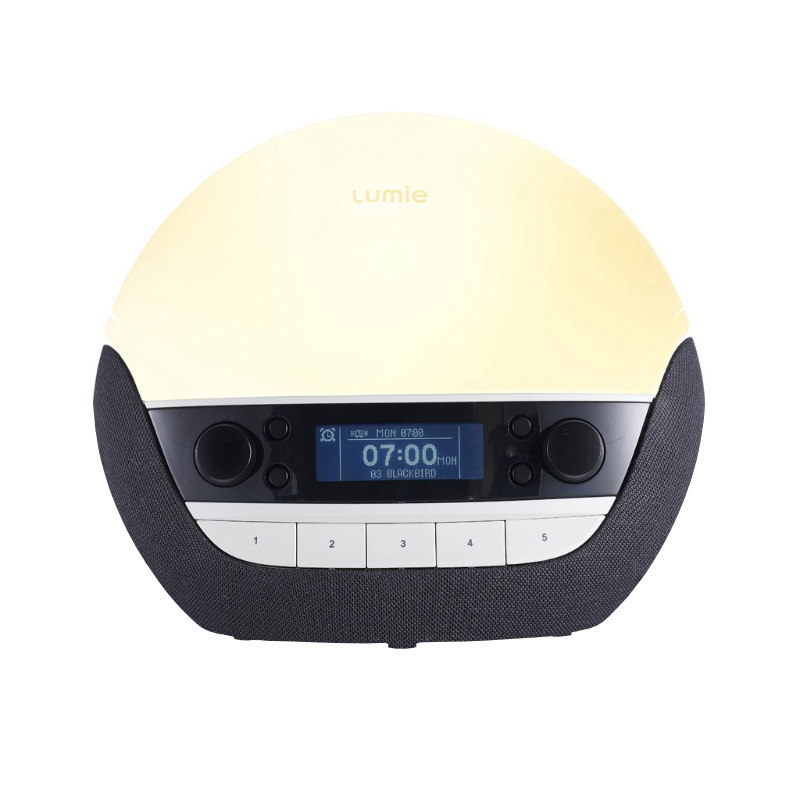
Getting a good night’s sleep could be as simple as changing the lighting in your room, and light that mimics daylight is one of the ways to help insomnia naturally that is easy and quick to set up.
The blue light from electronic devices can delay the release of sleep-inducing melatonin, so make your bedroom a phone-free zone and invest in a sunrise lamp like Lumie’s Bodyclock Luxe 700, £170. It has a bedtime option that mimics a real sunset, gradually dimming the light in your room over a 30-minute period, stimulating melatonin production and its all-important sleepy effect.
8. Slather on a sleep lotion
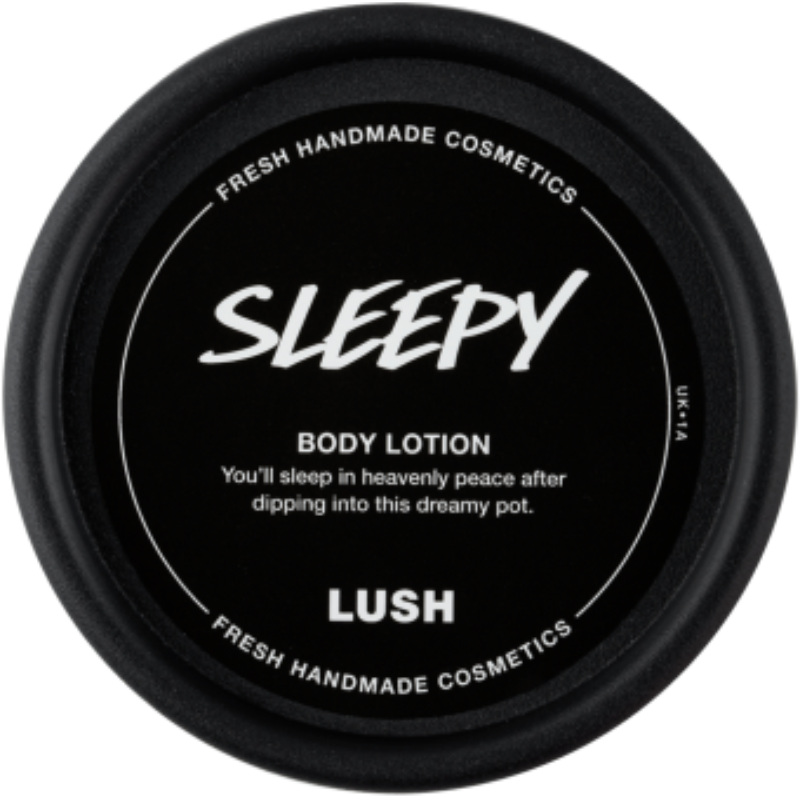
Parenting forums and beauty blogs have all been buzzing with the sleep-giving benefits of Lush’s Sleepy Body Lotion, £13.95 – some reviewers have even gone as far to claim that it has managed to cure their insomnia completely. The pale purple lotion utilises a potent mix of oatmeal, cocoa butter and lavender water – a natural relaxant with mood-altering properties. Slather on a layer before bedtime, paying particular attention to the neck and temples for a deeper, more fulfilling sleep.
9. Sip on some chamomile tea
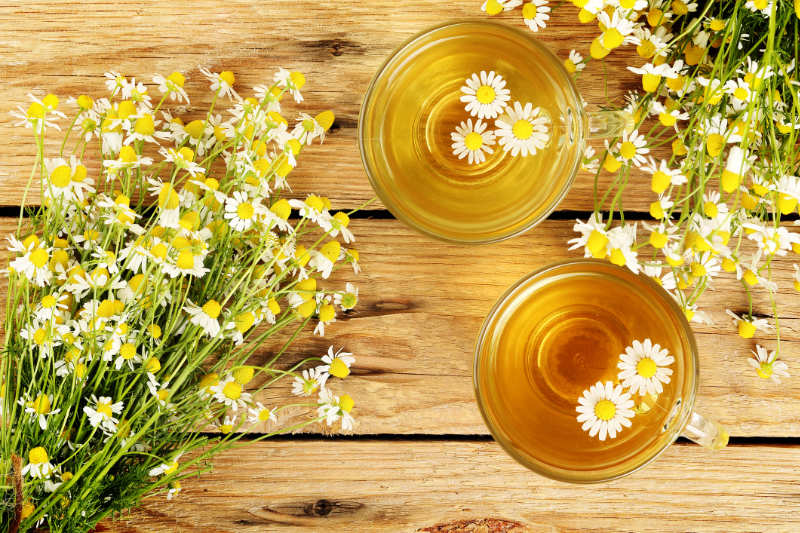
A good cup of tea is just what the doctor ordered when sleep won’t come – just don’t touch the English Breakfast. Chamomile has been used for centuries for its medicinal properties, in particular its ability to help you relax. Just one cuppa of the stuff can have a mild sedative effect, as well as the added benefit of being helpful in alleviating menstrual cramps.
10. Tune into pink noise
You’ve probably heard of white noise – which is basically a consistent, fuzzy, static sound that has a masking effect, blocking out the sudden changes in noise that can disturb light sleepers. Pink noise goes one step further, slowing down your brainwaves and helping regulate them, giving you a steady, long sleep. Next time you’re having trouble drifting off, try filling your room with the sounds of waves lapping on the beach or leaves rustling in the trees – these are nature’s pink noise creators (there are lots of apps where you can find them).
Best sleep hacks according to science – the 7 scientific approaches to sleeping























































